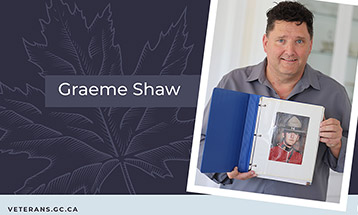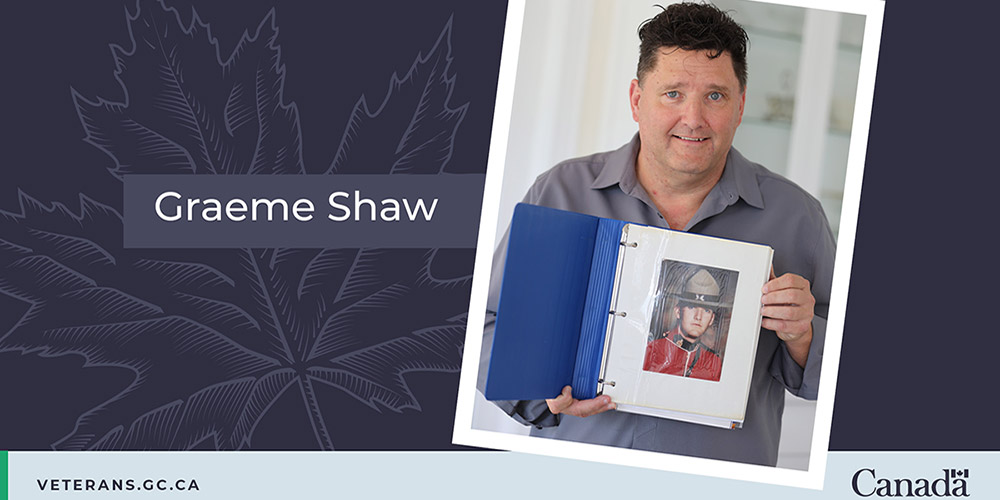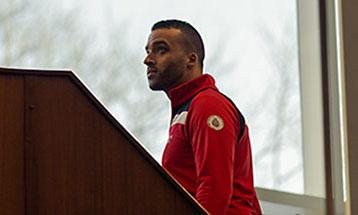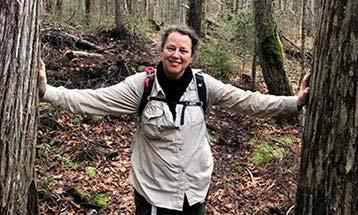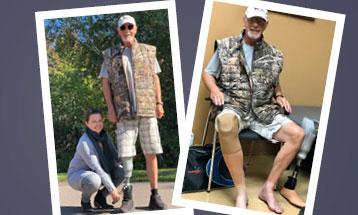Background
Shaw, Veterans Affairs Canada’s new RCMP Liaison, is ready to use his real-life experience to help support and improve the transition process from service to civilian life.
“This kind of work takes a toll on people. It can be a difficult adjustment,” the 33-year RCMP Veteran says.
Shaw retired from the RCMP in January 2021, ending a career that saw him go from general duties to highway patrol, drug enforcement to forensic identification across the country from British Columbia to Baffin Island and back to Prince Edward Island.
Shaw’s Transition Experience
When he left the RCMP, Shaw said his transition interview with Veterans Affairs reassured him he had support for his future and helped him mentally switch gears.
“I realized there were a lot of supports available to me and my family,” he said.
“Both (The RCMP and VAC transition interviews) were good, but on the VAC side it was more in tune with the way forward.”
He felt an immediate connection when he got his first copy of My VAC Book with his name on it. “It was a real opportunity to get more information.”
Shaw explains his three decades as a Mountie were busy and fulfilling—a path that led him to his newest career challenge.
“You always had a focus, a task, you knew what you were supposed to do each day.”
His days were filled with excitement and unexpected challenges and situations—being an RCMP officer had become an integral part of his identity.
Losing that in transition can be a tough adjustment.
Finding a new way to serve
When this huge life change is layered with injuries, disability or illness related to RCMP duties RCMP Veterans can find themselves in need of a helping hand.
That’s what Shaw aims to offer as he supports and improves the transition process and helps RCMP members connect with other VAC staff to start their transition process.
“I want to be that support and offer guidance,” he said.
Shaw plans to help Veterans connect with staff and navigate the programs and services VAC offers —from help with medical costs, services for families, disability pension programs and services, peer support networks for those living with an operational stress injury to mental health supports. He can help Veterans get connected with the right level of support to make sure they get into the right programs and services for them and their family.
He recommends scheduling a transition interview early in your release process so you and your family to find a clear path forward into your civilian life.
For more information on programs and services for Veterans of the RCMP visit https://www.veterans.gc.ca/eng/rcmp
Date published: 2021-06-15
